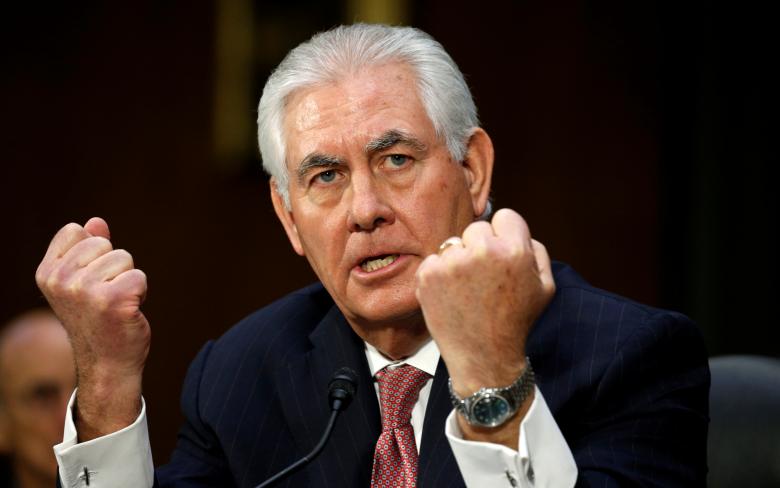Washington, Dammam, Khartoum – US Secretary of State Rex Tillerson said on Sunday that Qatar has started to review the list of 13 demands to end its crisis with the Arab states.
Tillerson urged each of Saudi Arabia, the UAE, Bahrain and Egypt, as well as Qatar, to sit down together in order to reach a solution to the ongoing crisis.
“A productive next step would be for each of the countries to sit together and continue this conversation,” he stated.
“We believe our allies and partners are stronger when they are working together towards one goal which we all agree is stopping terrorism and countering extremism,” he added.
He also stressed that the United States would continue to stay in close contact with all the concerned parties.
The 13-point list includes a demand on the closure of the Al-Jazeera television station that is owned by Qatar. It also demanded that Doha limit its ties with Iran.
Meanwhile, Turkey stepped up the Gulf crisis by announcing its decision to line up with Qatar. It added that the demands submitted by the four Arab countries were a violation of the international law.
In remarks on Sunday, Turkish President Recep Tayyip Erdogan denounced the demands on Qatar, adding that his country approved Doha’s stance against the 13-point ultimatum.
“We approve and appreciate the attitude of Qatar against the list of 13 demands …This approach of 13 demands is against international law because you cannot attack or intervene in the sovereignty of a country,” the Turkish president said, speaking outside an Istanbul mosque after prayers marking Eid al-Fitr.
In parallel, Gulf States have reiterated that resolving the crisis with Qatar through diplomatic means remained their utmost priority.
UAE Minister of State for Foreign Affairs Anwar Gargash said on Saturday: “This is not about regime change, this about behavioral change.”
“The alternative is not escalation, the alternative is parting of ways, because it is very difficult for us to maintain a collective grouping,” he added.
Sudanese President Omar al-Bashir reiterated his support to Kuwait in bridging the gap between Gulf States and Qatar. He also praised continuous efforts aimed at forging consensus to resolve the crisis.
